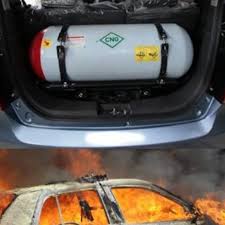The Federal Government has restated its commitment to building a new generation of skilled technicians who can support the country’s shift toward cleaner and more sustainable mobility, with the government emphasizing that the future of automotive development depends on the capacity of young people to handle emerging technologies.
This commitment was highlighted at the opening ceremony of a specialised mechatronics training programme in Oyo State, designed to equip youths and local technicians with practical skills for repairing and maintaining petrol and Compressed Natural Gas tricycles. The initiative is the result of a collaboration among the national automotive regulator, a major local tricycle manufacturer and the Office of the Special Assistant to the President on Youth Initiatives, reflecting a growing push to align Nigeria’s workforce with global clean energy trends.
During the event, the agency explained that the global shift toward CNG is no longer simply about introducing new technologies, but about improving knowledge, trust and public awareness. It stressed that people embrace clean energy solutions more easily when they understand their economic, environmental and safety advantages. By building confidence in CNG as a safe and reliable energy alternative, the government believes adoption will spread across communities, transport operators and small businesses that rely on mobility tools for daily income.
The training was described as a strategic intervention aimed at preparing youths for the rising opportunities emerging within the CNG value chain. The agency pointed out that CNG systems require precision and careful handling, making it essential to develop a workforce capable of maintaining these systems safely. With the rapid growth of tricycle transportation across Nigerian cities and rural communities, the programme is expected to empower participants with technical competence that can translate into employment or small-scale entrepreneurship.
According to the organisers, the trainees were selected to undergo intensive, hands-on learning that covers engine diagnostics, repair procedures, fuel management, safe handling of CNG components, preventive maintenance and guidance on starting and managing small workshops. The certificates to be issued at the end of the programme are intended to enhance their employability and increase their chances of establishing locally run service centres, especially in communities where technical expertise is scarce.
The initiative aligns with the wider plan of the national automotive regulator to strengthen human capital development across Nigeria. The Council has been developing Automotive Training Centres across the country’s six geopolitical zones, with many of the proposed twenty-one centres already completed and equipped with modern training tools. Some of these centres are currently serving as conversion hubs for CNG vehicles, supporting government efforts to adopt clean energy transportation options while improving industry standards.
The agency also acknowledged the contribution of the Oyo State Government, describing its support as essential to the success of the programme. It further recognised the role of its private sector partners in promoting technology transfer and supporting local manufacturing, which remain central pillars in building a resilient automotive ecosystem capable of serving both large-scale enterprises and small businesses.
Participants were urged to take full advantage of the opportunity, as the skills they acquire would not only enable them to repair modern mobility systems but also position them to become change makers, innovators and emerging entrepreneurs within Nigeria’s growing clean energy landscape. The programme, the agency noted, goes beyond technical capacity building; it prepares young Nigerians to become part of a future automotive industry anchored on local talent, sustainable energy use and innovation.
In its closing remarks, the Council reaffirmed its mission to drive the country’s automotive future by combining technological advancement with youth empowerment. It stressed that the journey toward a sustainable automotive industry will rely heavily on Nigerian ingenuity and the readiness of young people to embrace new skills.
For MSMEs, especially those operating in mobility, transportation, technical services and energy-related ventures, the rise of a skilled CNG-focused workforce signals fresh opportunities for growth and improved service delivery across African markets moving toward cleaner, more efficient mobility solutions.










